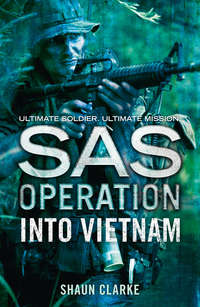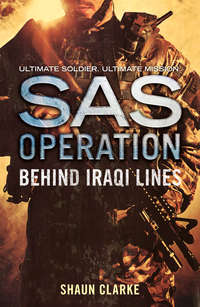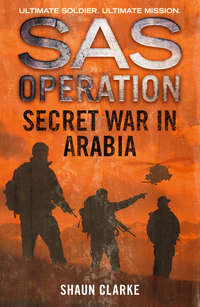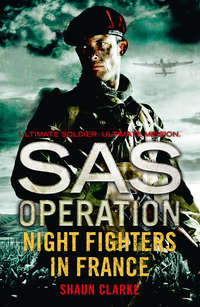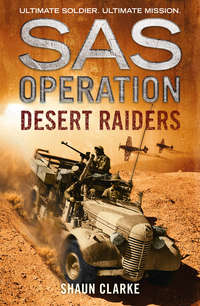
Полная версия
Into Vietnam
‘A bloody farce,’ Jimbo said.
‘And frustrating too. If the Aussies weren’t being driven mad by the corruption and incompetence of the ARVN officers, they were getting screwed by the South Vietnamese government, which bent according to the way the wind blew. For instance, one of the best men the Aussies had out there was Captain Barry Petersen, a veteran of the Malayan counter-insurgency campaigns. He was assigned to supervise paramilitary action teams of Montagnards in Darlac province in the Central Highlands…’
‘Montagnards?’ Dead-eye interrupted.
‘Yes. Darker than the Vietnamese, the Montagnards are nomadic tribesmen who distrust their fellow South Vietnamese. But they were won over by the CIA, who directed a programme to help them defend themselves against the commies. When Petersen arrived, he was put to work with a couple of the Montagnard tribes, quickly learnt the language and eventually forged a close relationship with them. This enabled him to teach them a lot, including, apart from the standard forms of village defence, the disruption of enemy infiltration and supply routes, the destruction of enemy food crops, and various forms of raiding, ambushing and patrolling. With the subsequent help of Warrant Officer Bevan Stokes, the Montagnards were given training in weapons, demolitions, map reading and radio communications. The results were impressive, but…’
‘Here it comes!’ Jimbo put in sardonically.
‘Indeed, it does…Petersen’s work with the Montagnards gained him the honour of a tribal chieftainship, success against the VC and recognition from his superiors. But the South Vietnamese government, alarmed that in two years Petersen had developed a highly skilled Montagnard army of over a thousand men who could be turned against them in a bid for independence, brought pressure to bear, forcing him to leave the country.’
‘So it’s tread with care,’ Dead-eye said.
Callaghan nodded. ‘Yes.’
‘Are the Aussies now on aggressive patrolling?’ Jimbo asked.
‘Yes. The watershed was in ’63 and ’64, when the South Vietnamese government changed hands no less than six times in eighteen months and the country descended into political chaos. Seeing what was happening, the Yanks stepped in again to rescue the situation and asked Australia for more advisers, some of whom were to operate with regular ARVN field units. This was the springboard to lifting the ban on combat. In July ’64 the Australian Army Training Team was strengthened to eighty-three men and the new recruits were assigned to the 1st ARVN Division in 1 Corps. Others were posted to military commands at province and district level, where their duties included accompanying Regional Force troops on operations, taking care of hamlet security, and liaising with ARVN troops operating in their area through the US advisory teams attached to the ARVN units. Officially, this was operations advising – the first step to actual combat.’
‘And now they’re in combat.’
‘Yes. The original members of the Team were soon followed by the 1st Battalion of the Royal Australian Regiment – nearly eight hundred men, supported by an armoured personnel carrier troop, a signals detachment and a logistics support company. Those men were established in Vietnam by June 1965, under the operational control of the US 173rd Airborne Brigade at its HQ in Bien Hoa, north-east of Saigon, south of the Dong Nai river and the notorious VC base area known as War Zone D. Side by side with the Americans, they’ve been fighting the VC in that area for the past year and mopping them up. They’ve done a good job.’
‘But we’re not going there. We’re going to Phuoc Tuy province,’ said Dead-eye.
‘Correct. Even as we talk, the first Australian conscripts are arriving there as part of the new Australian Task Force. They’re based at Nui Dat and their task is to clear the VC from their base area in the Long Hai hills, known as the Minh Dam secret zone. They’ll be supported by the Australian SAS and our task is to lend support to the latter.’
‘They won’t thank us for that,’ Jimbo observed. ‘Those Aussies are proud.’
‘Too true,’ Dead-eye said.
Callaghan tugged the cover from the blackboard behind him, raised the pointer in his hand and tapped it against the words ‘PHUOC TUY’, highlighed on the map with a yellow marking pen. ‘The Phuoc Tuy provincial border is some fifty miles south-east of Saigon. As you can see, the province is bounded by the South China Sea, the Rung Sat swamps – a formidable obstacle to any advance – and Long Kanh and Binh Tuy provinces. The population of slightly over 100,000 is concentrated in the south central area and in towns, villages and hamlets close to the provincial capital, Baria. That area is rich in paddy-fields and market gardens. But the rest of the province, about three-quarters of it, is mostly flat, jungle-covered country, except for three large groups of mountains: the May Tao group in the north-east, the Long Hai on the southern coast, and the Dinh to the west. All these mountainous areas are VC strongholds.’
‘Where’s the Task Force located?’ Dead-eye asked.
‘Around Nui Dat. A steep hill covered in jungle and rising nearly 200 feet above the surrounding terrain. The area’s big enough for an airfield and for the Task Force to move on if the new base comes under attack.’
‘Major problems?’ Dead-eye asked.
‘The VC village fortifications of Long Phuoc and Long Tan, south-east of the base, were destroyed in a joint American and Vietnamese operation just before the Aussies moved in. The villages were laid waste and their inhabitants resettled in others nearby. While this effectively removed the VC from those two villages, it created a great deal of bitterness among the pro-VC inhabitants who are now even more busily spreading anti-government propaganda and helping to strengthen the local VC infrastructure. Meanwhile the major VC force is operating out of a chain of base areas in the northern jungles of the province, most with extensive bunker and tunnel complexes. Altogether there are seven battalions of VC in the area and they can be reinforced at short notice. Against that, the province has only one ARVN battalion permanently based there, supplemented by several Regional Force companies and the so-called Popular Forces – the PF – which are local militia platoons raised to defend the villages as well as bridges, communications facilities and so forth. They’re poorly equipped, poorly trained, and repeatedly turned over by the VC’.
‘Sounds wonderful,’ Jimbo murmured.
‘A real fairy tale,’ Callaghan replied, then shrugged and continued: ‘Right now the VC have the upper hand, both militarily and psychologically. They’ve isolated Xuyen Mock in the east and Due Than in the north, both of which contained South Vietnamese district headquarters. They’ve heavily infiltrated all the other districts. They regularly cut all roads in the province and tax the loyal villagers who try to get out. Nevertheless, the area’s of vital strategic importance to the US build-up, with Vung Tau earmarked to become a major port, supplying the delta, Saigon and Bien Hoa. This means that Route 15 on the western edge of Phuoc Tuy has to be kept clear as a prospective military supply route from Vung Tau to Saigon. In order to do this, the Task Force has to push the VC out of the central region of the province and provide a protective umbrella for the population there. The first step in this task is the clearing of the VC from the Nui Dat base area. This job will be given to the American 173rd Brigade, aided by the Australian 5th Battalion, which is being flown in right now. The latter will be supported by the Australian SAS and we’re there to advise them.’
‘Does our advisory role stretch to aggressive patrolling, boss?’ Dead-eye asked slyly.
Callaghan grinned. ‘Officially, we’re not supposed to be there at all – officially, we don’t exist – so once there, I suppose we just play it by ear and do what we have to do.’
‘But if we fuck up, we get no support,’ Jimbo said.
‘Correct.’
‘When do we fly out?’
‘Tomorrow. On a normal commercial flight, wearing civilian clothing. We change into uniform when we get there.’
‘Very good,’ Dead-eye said.
Callaghan handed each of the two men a closed folder.
‘These are your travel documents and bits and pieces of useful information. Report back here at six tomorrow morning. Before then, I’ll expect you to have digested everything in these folders. Finally, may I remind you once more that our presence there might cause resentment from the Aussie troops. In other words, you may find that the hearts and minds you’re trying to win aren’t those of the South Vietnamese peasants, but those of the Aussie SAS. They’re notoriously proud, so tread carefully. If there are no questions I’ll bid you good evening, gentlemen.’
Dead-eye and Jimbo stood up and left the briefing room, carrying their top-secret folders. When they had gone, Callaghan turned to the map behind him and studied it thoughtfully. Eventually, nodding to himself, he unpinned and folded it, then went to prepare for his flight the next day.
3
Though it was still early in the morning, the sun was up and the light was brilliant, with the Long Hai hills clearly visible from the deck of the carrier HMAS Sydney, where the troops were waiting for the landing-craft. Most were National Servicemen, young and inexperienced, their suntans gained from three months of recruit training in the Australian heat. As the 5th Battalion advance party, they had come alone, with only a sprinkling of Australian SAS NCOs in their midst, but they would be joined by the remainder of their battalion in a few days, then by 6th Battalion, with whom they would form the 1st Australian Task Force in Vietnam. Right now, apart from being weary after the tedious twelve-day voyage from Australia, they were tense with expectation, wondering if they could manage to get to shore without either hurting themselves getting in and out of the landing-craft or, even worse, being shot at by the enemy.
‘Minh Dam secret zone,’ Shagger said to Red as they stood together at the railing of the carrier. ‘And there,’ he continued, pointing north-west to the jungle-covered hills beyond the peninsula of Vung Tau, ‘is the Rung Sat swamps. They’re as bad as those swamps in Malaya, so let’s hope we avoid them. We can do without that shit.’
Grinning, Red adjusted his soft cap and studied the conscript troops as they scrambled from the deck into the landing-craft, to be lowered to the sea. Hardly more than schoolboys, they were wearing jungle greens, rubber-soled canvas boots and soft jungle hats. Getting into the landing-craft was neither easy nor safe, as they had to scramble across from gates in the railing, then over the steel sides of the dangling boats. This necessitated a hair-raising few seconds in mid-air, high above the sea, while laden with a tightly packed bergen and personal weapons. These included the 7.62mm L1A1 SLR, the 5.56mm M16A1 automatic rifle with the 40mm M203 grenade launcher, the 9mm L9A1 Browning semi-automatic pistol and, for those unlucky few, the 7.62mm M60 GPMG with either a steel bipod or the even heavier tripod. Also, their webbing bulged with spare ammunition and M26 high-explosive hand-grenades. Thus burdened, they moved awkwardly and in most cases nervously from the swaying deck of the ship to the landing-craft dangling high above the water in the morning’s fierce heat and dazzling light.
‘Shitting their pants, most of them,’ Red said as he watched the conscripts clambering into the vessel.
‘It’ll be diarrhoea as thin as water,’ Shagger replied, leaning against the railing and spitting over the side, ‘if the VC guns open up from those hills. They’ll smell the stench back in Sydney.’
‘I don’t doubt it at all, Sarge. Still, I’m sure they’ll do good when the time comes to kick ass for the Yanks. All the way with LBJ, eh?’
‘I wouldn’t trust LBJ with my grandmother’s corpse,’ Shagger replied. ‘But if our PM says it’s all the way with him, then that’s where we’ll go – once we get off this ship, that is.’
Shagger and Red were the only two Australian SAS men aboard HMAS Sydney, present to take charge of the stores and vehicles of 3 Squadron, which were being brought in on this ship. The rest of the squadron was to be flown in on one plane directly from the SAS base at Campbell Barracks, Swanbourne, once they’d completed their special training in New Guinea in a few days’ time. Meanwhile Shagger had been placed temporarily in charge of this troop of regular army conscripts and was responsible for getting them from ship to shore. Once there, he and Red would split from them and go their own way.
‘Whoops! Here she comes!’
The landing-craft for Shagger’s men was released from the davits and lowered to deck level, where it hung in mid-air, bouncing lightly against the hull with a dull, monotonous drumming sound. When Red had opened the gate in the railing, Shagger slapped the first man on the shoulder and said, ‘Over you go, lad.’
The young trooper, eighteen at the most, glanced down the dizzying depths to the sea and gulped, but then, at a second slap on the shoulder, gripped his SLR more firmly in his left hand and, with his other, reached out to take hold of the rising, falling side of the landing-craft, and pulled himself over and into it. When he had done so, the other men, relieved to see that it was possible, likewise began dropping into the swaying, creaking vessel one after the other. When everyone was in, Shagger and Red followed suit.
‘Hold on to your weapons,’ the sergeant told the men packed tightly together. ‘This drop could be rough.’
And it was. With the chains screeching against the davits, the landing-craft was lowered in a series of swooping drops and sudden stops, jerking back up a little and swinging from side to side. The drop did not take long, though to some of the men it seemed like an eternity and they were immensely relieved when, with a deafening roaring, pounding sound, the boat plunged into the sea, drenching them in the waves that poured in over the sides. The engine roared into life, water boiled up behind it, and it moved away from the towering side of the ship, heading for shore.
‘Fix bayonets!’ Shagger bawled above the combined roar of the many landing-craft now in the water.
As the bayonets were clicked into place, Shagger and Red grinned at each other, fully aware that as the VC guns had not already fired, they would not be firing; and that the men would be disembarking on to the concrete loading ramp in the middle of the busy Vung Tau port area rather than into a murderous hail of VC gunfire. In fact, the reason for making the men fix bayonets was not the possibility of attack as the landing-craft went in, but to instil in them the need to take thorough precautions in all circumstances from this point on. Nevertheless, when, a few minutes later, the landing-craft had ground to a halt, the ramp was lowered, and the men marched out on to the concrete loading ramp with fixed bayonets, the American and Vietnamese dock workers burst into mocking applause and wolf whistles.
‘Eyes straight ahead!’ Shagger bawled. ‘Keep marching, men!’
Marching up ahead, Shagger and Red led the conscript troops to the reception area of the Task Force base, which had been set up on a deserted stretch of beach on the eastern side of the Vung Tau peninsula. The Task Force consisted of two battalions with supporting arms and logistic backup, a headquarters staff, an armoured personnel carrier squadron, an artillery regiment, an SAS squadron, plus signals, engineer and supply units, totalling 4500 men – so it was scattered across a broad expanse of beach.
‘Sergeant Bannerman reporting, sir,’ Shagger said to the 1st Australian Logistic Support Group (1 ALSG) warrant officer in charge of new arrivals. ‘Three Squadron SAS. In temporary charge of this bunch of turnip-heads and now glad to get rid of them.’
‘They all look seasick,’ the warrant officer observed.
‘That and a touch of nerves. They’re National Servicemen, after all.’
‘Not tough bastards like the SAS, right?’
‘You said it.’
‘Now piss off back to your SAS mates, Sarge, and let me deal with this lot. I’ll soon knock them into shape.’
‘Good on you, sir. Now where would the supplies for 3 Squadron be?’
‘I’m regular army, not SAS. I look after my own. You’ve only been here five minutes and you’re confessing that you’ve already lost your supplies? With friends like you, who needs enemies?’
‘Thanks for that vote of confidence, sir. I think I’ll be on my way.’
‘As long as you’re not in my way, Sarge. Now take to the hills.’
‘Yes, sir!’ Shagger snapped, then hurried away, grinning at Red, to look for his missing supplies. In the event, they had to be separated from the general mess of what appeared to be the whole ship’s cargo, which had been thrown haphazardly on to the beach, with stores scattered carelessly among the many vehicles bogged down in the sand dunes. Luckily Shagger found that the quartermaster for 1 ALSG was his old mate Sergeant Rick McCoy, and with his help the supplies were gradually piled up near the landing zone for the helicopters.
‘A nice little area,’ McCoy informed Shagger and Red, waving his hand to indicate the sweeping beach, now covered with armoured cars, half-tracks, tents, piles of canvas-covered wooden crates and a great number of men, many stripped to the waist as they dug trenches, raised pup tents or marched in snaking lines through the dunes, heading for the jungle-covered hills beyond the beach. ‘Between these beaches and the mangrove swamps to the west you have Cap St Jacques and the port and resort city of Vung Tau. Though Vung Tau isn’t actually part of Phuoc Tuy province, it’s where we all go for rest and convalescence. Apparently the VC also use the town for R and C, so we’ll all be nice and cosy there.’
‘You’re kidding!’
‘No, I’m not. That place is never attacked by Charlie, so I think he uses it. How the hell would we know? One Vietnamese getting drunk or picking up a whore looks just like any other; so the place is probably filled with the VC. That thought should lend a little excitement to your next night of bliss.’
‘Bloody hell!’ said Red.
In fact, neither Red nor Shagger was given the opportunity to explore the dangerous delights of Vung Tau as they were moved out the following morning to take part in the establishment of an FOB, a forward operating base, some sixteen miles inland at Nui Dat. Lifted off in the grey light of dawn by an RAAF Caribou helicopter, they were flown over jungle wreathed in mist and crisscrossed with streams and rivers, then eventually set down on the flat ground of rubber plantations surrounding Nui Dat, a small but steep-sided hill just outside Baria.
The FOB was being constructed in the middle of the worst monsoon the country had experienced for years. Draped in ponchos, the men worked in relentless, torrential rain that had turned the ground into a mud-bath and filled their shelters and weapons pits with water. Not only did they work in that water – they slept and ate in it too.
To make matters worse, they were in an area still dominated by the enemy. Frequently, therefore, as they toiled in the pounding rain with thunder roaring in their ears and lightning flashing overhead, they were fired upon by VC snipers concealed in the paddy-fields or behind the trees of the rubber plantations. Though many Aussies were wounded or killed, the others kept working.
‘This is bloody insane,’ Shagger growled as he tried to scoop water out of his shallow scrape and found himself being covered in more mud. ‘The floods of fucking Noah. I’ve heard that in other parts of the camp the water’s so deep the fellas can only find their scrapes when they fall into them. Some place to fight a war!’
‘I don’t mind,’ Red said. ‘A bit of a change from bone-dry Aussie. A new experience, kind of. I mean, anything’s better than being at home with the missus and kids. I feel as free as a bird out here.’
‘We’re belly down in the fucking mud,’ Shagger said, ‘and you feel as free as a bird! You’re as mad as a hatter.’
‘That some kind of bird, is it, Sarge?’
‘Go stuff yourself!’ said Shagger, returning to the thankless task of bailing out his scrape.
Amazingly, even in this hell, the camp was rapidly taking shape. Styled after a jungle FOB of the kind used in Malaya, it was roughly circular in shape with defensive trenches in the middle and sentry positions and hedgehogs: fortified sangars for twenty-five-pound guns and a nest of 7.62mm GPMGs. This circular base was surrounded by a perimeter of barbed wire and claymore mines. Shagger and Red knew the mines were in place because at least once a day one of them would explode, tripped by the VC probing the perimeter defences with reconnaissance patrols. Still the Aussies kept working.
‘Now I know why the Yanks fucked off,’ Shagger told Red as they huddled up in their ponchos, feet and backside in the water, trying vainly to smoke cigarettes as the rain drenched them. ‘They couldn’t stand this bloody place. Two minutes of rain, a single sniper shot, and those bastards would take to the hills, looking for all the comforts of home and a fortified concrete bunker to hide in. A bunch of soft twats, those Yanks are.’
‘They have their virtues,’ Red replied. ‘They just appreciate the good things in life and know how to provide them. I mean, you take our camps: they’re pretty basic, right? But their camps have air-conditioners, jukeboxes and even honky-tonk bars complete with Vietnamese waiters. Those bastards are organized, all right.’
‘We’ve got jukeboxes,’ Shagger reminded him.
‘We had to buy them off the Yanks.’
‘Those bastards make money out of everything.’
‘I wish I could’, Red said.
‘Well, we’re not doing so badly,’ said Shagger. ‘This camp’s coming on well.’
It was true. Already, the initial foxholes and pup tents had been replaced by an assortment of larger tents and timber huts with corrugated-iron roofs. Determined to enjoy themselves as best they could, even in the midst of this squalor, the Aussies, once having raised huts and tents for headquarters, administration, communications, first aid, accommodation, ablutions, transport, supplies, weapons and fuel, then turned others into bars, some of which boasted the jukeboxes they’d bought from the Yanks. There were also four helicopter landing zones and a single parking area for trucks, jeeps, armoured cars and tanks.
While they were waiting for the other members of 3 Squadron to arrive, Shagger and Red between them supervised the raising of a large tent to house the SAS supplies already there. The tent was erected in one day with the help of Vietnamese labourers stripped to the waist and soaked by the constant rain. When it was securely pegged down, the two SAS men used the same labourers to move in the supplies: PRC 64 and A510 radio sets, PRC 47 high-frequency radio transceivers, batteries, dehydrated ration packs, US-pattern jungle boots, mosquito nets and a variety of weapons, including SLRs, F1 Carbines and 7.62mm Armalite assault rifles with twenty-round box magazines. Shagger then inveigled 1 ALSG’s warrant-officer into giving him a regular rotation of conscript guards to look after what was, in effect, 3 Squadron’s SAS’s quartermaster’s store.
‘I thought you bastards were supposed to be self-sufficient,’ the warrant officer said.
‘Bloody right,’ Shagger replied.
‘So how come you can’t send enough men in advance to look after your own kit?’
‘They’re still mopping up in Borneo,’ Shagger said, ‘so they couldn’t fly straight here.’
‘And my name’s Ned Kelly,’ the warrant officer replied, then rolled his eyes and sighed. ‘OK, you can have the guards.’
‘I’ve got that prick in my pocket,’ Shagger told Red when they were out of earshot of the warrant officer.
‘You’ll have him up your backside,’ Red replied, ‘if you ask for anything else.’
When construction of the camp had been completed, five days after Shagger and Red had arrived, the two men were called to a briefing in the large HQ tent. By this time the rest of 3 Squadron had arrived by plane from Perth and were crowding out the tent, which was humid after recent rain and filled with whining, buzzing flies and mosquitoes. As the men swotted the insects away, wiped sweat from their faces, and muttered a wide variety of oaths, 1 ALSG’s CO filled them in on the details of the forthcoming campaign against the Viet Cong.


